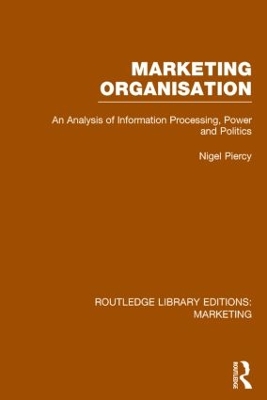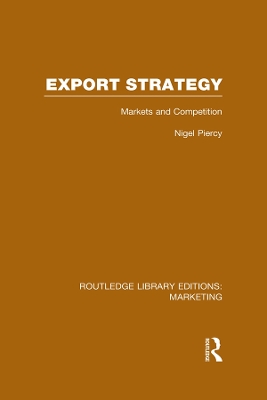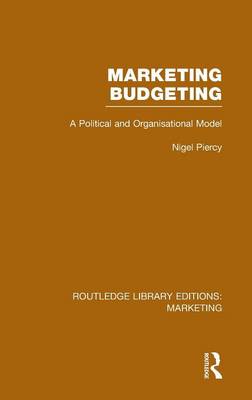Routledge Library Editions: Marketing
4 total works
A good marketing information system is an essential ingredient of all successful marketing. This book provides a comprehensive introduction to this key subject. This book not only covers market research techniques but also shows how research techniques should fit into a broader market information system which is skilfully and intelligently designed to suit the particular corporate context.
Aimed primarily at the MBA student or those preparing for professional qualifications in the marketing field, this book analyses the process of decision making in marketing and the role of organisation. It examines:
- The study of the organisational location and positioning of the marketing function
- The analytical perspectives of information-processing theories of organisation
- The relationship between structure and information
- Organisational processes
This book offers management students and managers new insights by approaching exporting from the perspective of marketing planning, rather than the mechanics of export practice. The author evaluates the widely recommended strategy of key market concentration, showing its weaknesses and the flaws in the supporting evidence. The book provides the reader with a framework for making an explicit and informed choice between the real market options faced in practical export situations, which takes into account the many company and market factors shaping such strategies. Closely related to market strategy is the competitive base for a company’s exporting, particularly in balancing price and non-price forms of competition, and this is assessed in the second part of the book.
This book represents a radical departure from the established theory in taking an organisational view of resource allocation in marketing, which stresses the importance of structure and process rather than just budgeting technique. The book describes and analyses marketing organisation and processes in terms of organisational power and politics and models market budgets as political outcomes.



